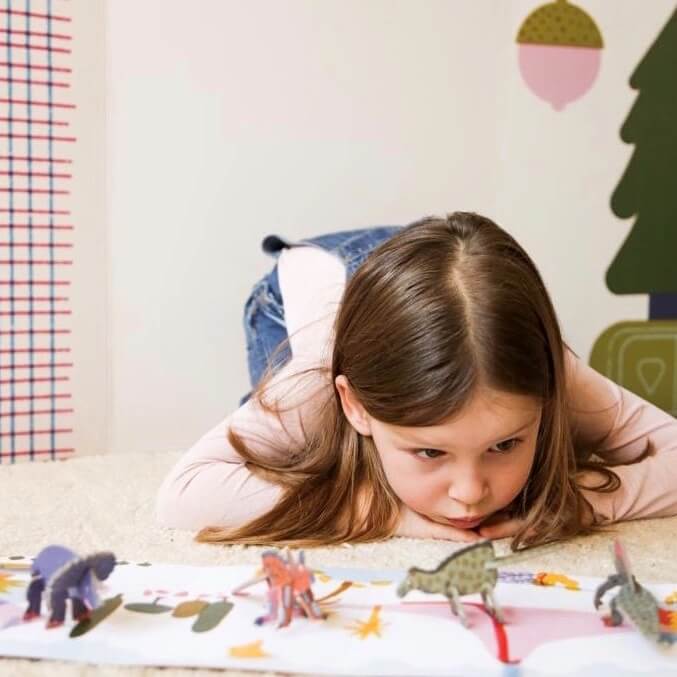Your child swears by the T-Rex, endlessly collects figurines of different species and replays over and over again the cartoons “The Little Dinosaur” or for the older ones “Jurassic Park”? Like a real little genius, he also impresses adults by quoting without any problem about twenty scientific names of dinosaurs? Don’t worry, your child is completely “normal” 😉
Where does children’s passion for dinosaurs come from?
There is no doubt in the scientific community about the benefits of this passion. Many children between the ages of 2 and 6 develop an “intense interest” in dinosaurs.
Scientists call this obsession of young children with dinosaurs “Extremely Intense Interests” (EII), as reported in an article in The Cut, published on December 6, 2017.
Above all, these creatures have the particularity of appearing to the child as a figure that is both disturbing and reassuring. They give support to their fears and are a kind of antidote: they no longer exist, so there is no risk of biting their feet in their beds! The tyrannosaurus is a bit like a big buddy, like an adult who can be severe and protective at the same time.
Learning the name and dinosaurs and their characteristics is also a way for the younger ones to tame the emotions they feel when they rub shoulders with them. When things are named, they are less scary.
My child knows more than me: is it serious, doctor?
With this passion for dinosaurs, you may have noticed that your child knows more than you do. More than you, but also more than the teacher and the vast majority of the adults around him! And this is the first time this has ever happened. This is an excellent way to make children want to deepen their knowledge, to show perseverance, to develop this mastery and to boost their self-confidence.
How can we support this passion for dinosaurs?
As a parent, it’s not always easy to find the right attitude. Don’t think about curbing this passion, even if you get tired of it. It is important to answer all their questions. Seek information with him or her and invite him or her to explore this area. Encourage him, when you see him concentrate and persevere in this way. For paleontologist Jean Le Lœuff, parents are amazed to see their children master the subject so well. “They are proud of it. Sometimes, even, this admiration seems a little irrational. “But for the child, such a feeling nourishes his self-confidence.
Thanks to dinosaurs, children are indeed able to pronounce perfectly – or almost perfectly – Latin names such as Diplodocus or Triceratops and to describe their eating habits (herbivore, carnivore…). Children are rigorous in their obsession and this allows them to develop better attention, improve their historical knowledge and train their memory.
Sometimes, as the child grows older, this passion continues and is transformed. The child goes deeper into the subject and becomes passionate about paleontology, prehistory and science in general.
It is up to you, the parents, to maintain this passion so that they cultivate it for as long as possible. At Poppik, we offer a large poster that the child completes himself with large repositionable stickers. The poster is divided into 3 main periods: Triassic, Jurassic and Cretaceous. The child will classify the dinosaurs and memorize their names. The names are given in Latin. On the leaflet that accompanies the poster, you can discover the meaning of these names. Do you know, for example, that Velociraptor means “fast flyer”?
Click here to discover our giant poster and its 32 stickers. And click here to discover our dinosaur surprise chocolates.
Supporting all passions
Children can have many other devouring passions: soccer, insects, cars, animals… In any case, it is strongly advised to support these passions. This will encourage the child to read books, to assimilate a very complex vocabulary. These passions also call upon memory, logic, and ask the child to cross-reference very complex data. It’s a way of putting his reasoning to the test. Who says better?
Discover here our posters on children’s passion themes.



